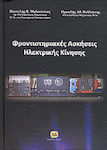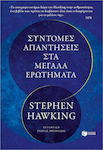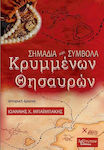Απρονοησία και Νέμεση, Greek crisis 2001-2011
- Authors: Τάσος Αβραντίνης, Κώστας Αζαριάδης, Δημήτρης Βαγιανός, Μανώλης Βασιλάκης, Παναγής Βουρλούμης, Τάσος Γιαννίτσης, Γιώργος Β. Δερτιλής, Αρίστος Δοξιάδης, Μιχάλης Ζουμπουλάκης, Χρυσάφης Ιορδάνογλου, Παναγιώτης Κ. Ιωακειμίδης, Γιάννης Μ. Ιωαννίδης, Δημήτρης Α. Ιωάννου, Ιωάννης Δ. Ληξουριώτης, Αντιγόνη Λυμπεράκη, Μάνος Ματσαγγάνης, Μιχάλης Μητσόπουλος, Βασίλης Μοναστηριώτης, Νίκος Π. Μουζέλης, Σίμος Μπενσασσών, Μιράντα Ξαφά, Δημήτρης Παπαδημητρίου, Αθανάσιος Παπανδρόπουλος, Παρασκευάς Πασσιάς, Χριστόφορος Πισσαρίδης, Θόδωρος Σκυλακάκης, George Soros, Γιάννης Σπράος, Γιάννης Στουρνάρας, Πλάτων Τήνιος, Λουκάς Τσούκαλης, Μιχάλης Χαλιάσος, Μιχάλης Μ. Ψαλιδόπουλος, Τάκης Αθανασόπουλος
- Publisher: The Athens Review of Books
- Μορφή: Soft Cover
- Έτος έκδοσης: 2012
- Αριθμός σελίδων: 446
- Κωδικός ISBN-13: 9789602520116
- Διαστάσεις: 21×14
Similar products
 Top rated
Top rated
Scientific Books
Ο Μύθος Του Φυσιολογικού, Trauma, disease and healing in a toxic culture
Ad from SilverProductsAdded Top rated
Top ratedScientific Books
Προς τ’ άστρα, A magical journey into the world of Astrophysics
Ad from MykyklosAdded
 Top rated
Top rated





Scientific Books
Ειδικότητα τεχνικός μηχανοτρονικής: Απαντήσεις στην τράπεζα θεμάτων του ΕΟΠΠΕΠ
from 9,75 €Added
Scientific Books
Κωδικας Πολιτικης Δικονομιας Σεπτεμβριος 2024 Εκδόσεις Σάκκουλα Α.ε
from 10,80 €Added
All shops
Prices are calculated for:Luxembourg, Other Payment Options
- 14,40 €
- 15,50 €
Description
The Greek crisis through the pages of the Athens Review of Books. 45 essays by 33 well-known scientists about the decade 2001-2011 of counterfeit prosperity, where the frenzy of debauchery prevailed. "Debauchery" with all the meanings of the word, namely both the unpunished squandering of European funds and loans, public wealth, as well as profligacy, corruption, pursuits of effortless enrichment but also the vilification of entrepreneurship, creative forces and activities, phenomena that generally fall into a -Cavafian- national life of pleasure and tastelessness, that is, the regime of Existing Populism in the country and in the minds of people during the post-dictatorship period, especially after 1981.
The first issue of the "Athens Review of Books" was published in November 2009, as the Greek crisis erupted. The major upheavals that followed explain the reason that led ARB to devote a significant part of its interest to economics. Two and a half years later, a corpus of dozens of essays has been formed that offer a coherent narrative and explanation of how we got here, but also where we can go from here.
Forty-five (45) of these make up the volume at hand and have a common denominator: the unprecedented economic and cultural crisis that plagues our country. Their 33 authors are well-known scientists, while some of them have also held positions of responsibility in the past, and therefore speak from experience. The reader of the collective volume thus has the opportunity to compare the data, findings, conclusions, and proposals of these analysts with the deceptive and sophistic claims of our political power system in order to deceive the Greek people once again and to shed its own heavy responsibilities for the torturous reality that Greek citizens are experiencing and will continue to experience for many more years. From this comparison, the central meaning of the volume emerges effortlessly, which is none other than the realization of this very deception.
The power system in Greece is composed of an unholy alliance of oligarchic cut: MPs and party leaders, who are fed by the public treasury, media-entangled state-dependent businessmen, guild and union circuits, mass "information" media and dazed citizens, nepotism and opportunism, in short coincidentia oppositorum, in other words: collusion of extremes for self-benefit. It would be unforgivable naivety to think that this system has not developed to the maximum degree the instinct of self-preservation. And now even when the fraud has been revealed, the illusion has fallen to the ground, the bubble has burst, the system maneuvers skillfully, spreading the blame to foreign "usurers" and to the entire population ("We ate it together!"). The most astonishing achievement of the Greek power system is that it has managed, in the consciousness of a high percentage of public opinion, to transfer a large part of its own responsibilities for what happened and is happening, and especially to our international financiers.
By studying the texts of this volume, the reader will find the economic data and facts that prove this claim.
Therefore, the sober reader will realize that "usurers never came to take our national wealth." A usurer is someone who demands a higher interest rate when you are in need. On the contrary, they asked us for half the market interest rate. And later, while the market interest rate soared to 30%, they lowered it to 3.5%. That is, the same rate at which France borrows today and almost half of what Italy borrows. The Europeans lent us on favorable terms, not because they are above money, but because they weighed the cost of Greek bankruptcy for the common currency and the negative impacts this development would have on the European Idea. Their decision was taken rather coldly, as a resultant of their interests and based on the political data they faced.
It will also be found that the troika bears a share of the responsibility for the program's failure because it did not insist on the implementation of the memorandum it had dictated. On the contrary, it succumbed to the reactions of the two ruling parties that have successfully tried so far to maintain their mechanisms in the public sector, organizations, and public enterprises. The state-dependent left - because it also participated in the distribution of power to the extent of its share - both the dogmatic and the supposedly anti-authoritarian, as well as the pseudo-modernizing, stood as allies of the two parties.
Unfortunately, this volume foreshadows but cannot answer the crucial question: will our corrupt political system of power ultimately survive? Or will the basic law prevail that you can deceive many people for a short time, but you cannot deceive everyone forever? - and we have the impression that a ray of light is discernible in the deep darkness. [...]
(from the preface by Manolis Vasilakis)
Specifications
- Genre
- Astronomy
- Language
- Greek
- Subtitle
- Greek crisis 2001-2011
- Format
- Soft Cover
- Number of Pages
- 446
- Publication Date
- 2012
- Dimensions
- 21x14 cm
Important information
Specifications are collected from official manufacturer websites. Please verify the specifications before proceeding with your final purchase. If you notice any problem you can report it here.
Reviews
Masterpiece. Comprehensive. It is incredibly interesting. You read it really easily, characterized by energy and clarity to such an extent that you don't realize how quickly you change the pages.
Translated from Greek ·- Paper quality
- Was it easy to read?
- Understanding of the subject matter
- Was it interesting enough?
- I liked the writing style
- I would read a book by the same author
- I would recommend it for reading
Did you find this review helpful?












